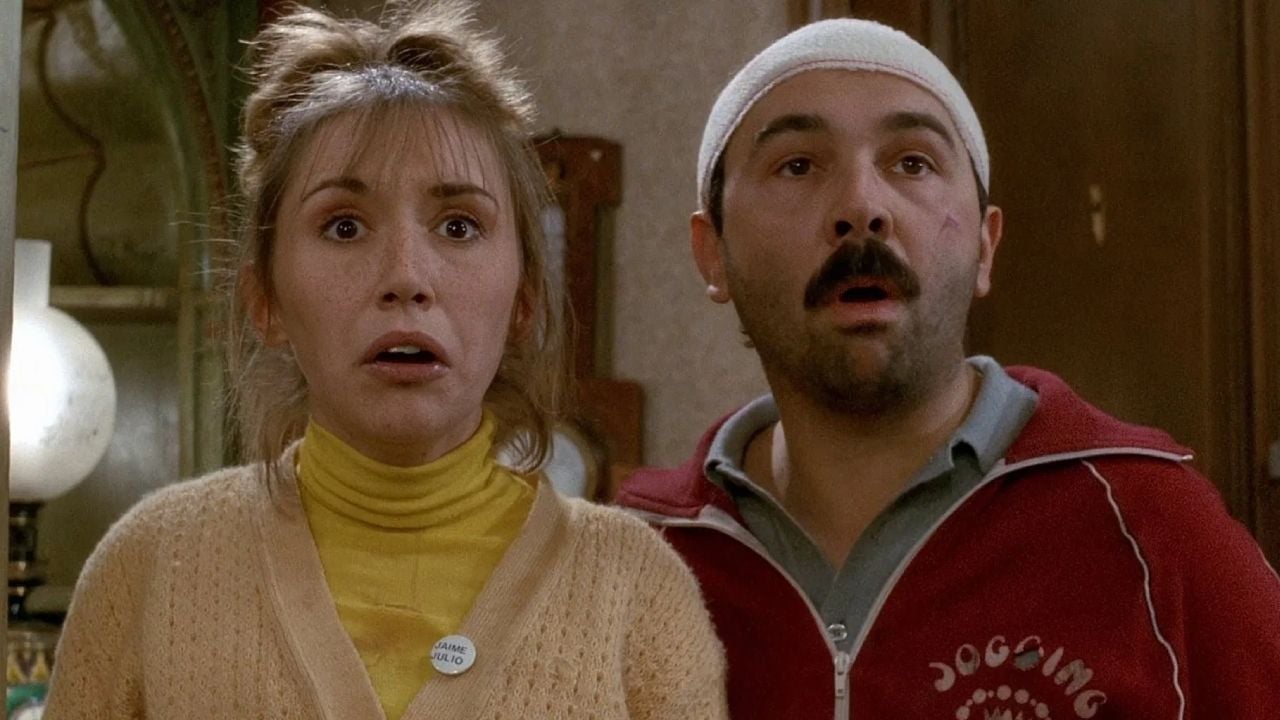Ao Fantástico, a couple who were imprisoned for more than a month in Frankfurt after the change of suitcases, said they were held in a cold and dirty cell without eating and subjected to a “humiliating” intimate search. “We lived with killers.” Brazilians Kátyna Baía, 44, and Jeanne Paolini, 40, who were trapped for more than a month in Germany after changing their luggage tags, recounted the “terrible days” they spent in prison, in an interview with the program Fantastic, on TV Globo.
In the report shown this Sunday (16/04), the couple claims that they were even put in a dirty room, where they were cold and hungry. In the Frankfurt detention center, they slept in separate cells and said they lived with “really dangerous” people, including murderers.
Kátyna and Jeanne departed on 4 March from Santa Genoveva Airport, in Goiânia, bound for Berlin, Germany. Along the way, they had planned connections in Guarulhos (SP) and Frankfurt (Germany).
They arrived in Frankfurt on March 5, planning to spend a 20-day vacation in Germany, Belgium and the Czech Republic. At the airport, while waiting to change planes for Berlin, the couple were stopped and held by German police with the drug trafficking charge.
“I kept asking him [policial] in English: ‘Where is my wife? Where is my wife?’ And then they handcuffed me. I kept asking him what was going on, that’s when I understood the word cocaine,” personal trainer Kátyna tells Fantástico.
In two checked bags with tags with their names were 40 kilos of cocaine. But the bags did not belong to the duo, as investigations conducted in Brazil have shown. The labels were changed by Guarulhos airport employees.
In the interview, Kátyna and Jeanne say they only realized that the charge was international drug trafficking many hours later, when an interpreter arrived. Meanwhile, they spent five hours in a room, handcuffed and foot-cuffed, frozen.
“They took our coats off, it was a very cold day. If I’m not mistaken, it was 2 degrees,” says Kátyna. “Besides, we had to go through a humiliating intimate search at that time,” completes veterinary doctor Jeanne.
Then, again on March 5, the two were taken to a temporary building, where they spent the night. “[Era] a very cold place, a dirty cell, we didn’t eat. And in this place there were people shouting, knocking on the door, in different languages. We haven’t slept since that day,” says Jeanne.
“Nightmare” in prison in Frankfurt
The next day, March 6, the couple was transferred to a detention center in Frankfurt, where they remained for over a month. They say they spent 16 hours a day locked up in individual “very small” cells, each about 6 square meters, and only met during periods of collective coexistence.
“We didn’t have books, we didn’t have television. An hour in there, for us, was a day. […] When I opened my eyes, I looked and [pensava]: ‘This nightmare is not over. I’m still in that cell,'” Jeanne tells Fantástico.
“The feeling of injustice was very great. Being in a prison knowing that you are innocent hurts a lot. It brought us despair every day. ‘Why did this happen to us?'”
In prison, they say they lived with people who had committed all kinds of crimes. “Murderers, serial killers, arsonists… there were all kinds of people,” says Kátyna. “It was an unhealthy environment in many ways: mentally, physically; and we feared for our safety, obviously, because we were surrounded by dangerous, really dangerous people.”
No access to medicine
Kátyna also says that, initially, she didn’t have access to the medications she takes on a regular basis. “I had surgery to correct a brain aneurysm. So I’ve been on medication continuously for many years. I’m also a chronic pain patient. This access was denied,” says the personal trainer.
He says that, later, he was able to consult a second prison doctor, a general practitioner, who ended up modifying, however, the active ingredient and the dosage of his medicines. “There were days where I took three pills, there were days where there were two, there were days where there were four. And I had to take them at random, because I really needed them.”
the release
Kátyna and Jeanne left prison last Tuesday, April 11, after 38 days of detention. The request for release was accepted by the German prosecutor’s office, which decided to drop the charges against the couple, after having sent images and evidence from the Brazilian authorities which attested to the exchange of luggage by a gang formed by outsourced employees of the Guarulhos Airport.
The Brazilian federal police have already arrested seven suspects involved in the case. Investigations continue to try to find out who ordered the crime and who were the two women who sent the suitcases containing the drugs.
In Fantástico, Kátyna and Jeanne talk about how they received the news that they would be released. “A policewoman arrives, speaking in German. […] I said, ‘I don’t understand. In English please’. Then she said, ‘You are free. Gather your things you are free.’ At that moment I said ‘Free?’ I already ran into Jeanne’s cell and started screaming.”
Upon leaving prison they were greeted by employees of the Brazilian consulate in Frankfurt who, from the outside, helped speed up the release process. “At that very moment, coincidentally, our family was arriving. It immediately healed our hearts from these terrible days we have been through because of this injustice,” says Kátyna.
The couple left for Brazil on Thursday 13 April and arrived in Goiânia, the city where they live, on Friday morning.
Search for repair
In an interview with Fantástico, the couple’s lawyer, Luna Provázio, says that he will seek compensation for the moral and material damages suffered by the two. “We believe that justice has not yet been done. […] They suffered severe humiliation in Germany. They have been accused of serious crimes there. So it’s an inconvenience and a psychological trauma for both of us that no amount of money can fix,” says the lawyer.
“My heart still beats when I hear noises. I remember the sound of keys, the sound of locks. I still couldn’t sleep. I woke up at the time they woke up in prison,” says Jeanne.
ek/lf (ots)
Source: Terra
Rose James is a Gossipify movie and series reviewer known for her in-depth analysis and unique perspective on the latest releases. With a background in film studies, she provides engaging and informative reviews, and keeps readers up to date with industry trends and emerging talents.





